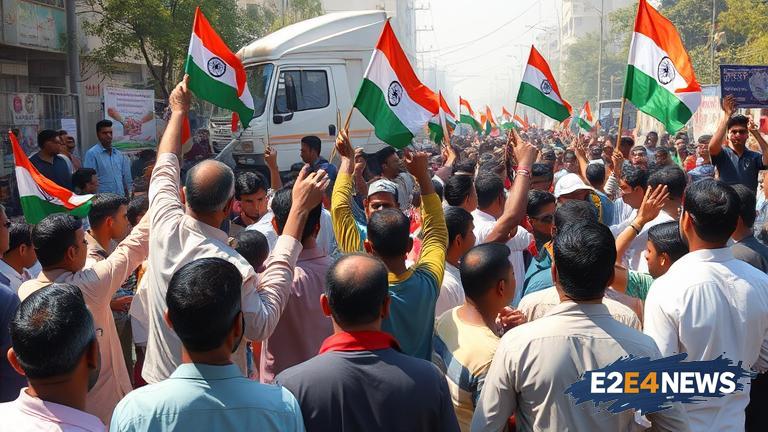The Indian state of Jharkhand has been witnessing large-scale protests in recent days, with opposition parties and various activist groups taking to the streets to demand a revision of the electoral roll. The protests, which have been ongoing for several days, have seen thousands of people gather outside the state assembly, chanting slogans and waving banners. The opposition parties, including the Congress and the Jharkhand Mukti Morcha, have been alleging that the current electoral roll is flawed and needs to be revised to ensure free and fair elections. They claim that the roll contains errors and discrepancies, which could lead to the disenfranchisement of thousands of voters. The protesters are demanding that the state government take immediate action to revise the electoral roll and ensure that all eligible voters are included. The Jharkhand government, however, has maintained that the electoral roll is accurate and that there is no need for a revision. Despite this, the protests continue to grow in size and intensity, with more and more people joining in to demand their right to vote. The issue has also sparked a heated debate, with some arguing that the protests are a legitimate expression of democratic dissent, while others see them as an attempt to disrupt the electoral process. The Jharkhand police have been deployed to maintain law and order, but the situation remains tense. The protests have also had an impact on daily life, with shops and businesses closed and traffic disrupted. The opposition parties have vowed to continue the protests until their demands are met, and the state government has been urged to take a more conciliatory approach. The electoral roll revision issue has also raised questions about the role of the Election Commission of India, which is responsible for ensuring the integrity of the electoral process. The Commission has been criticized for not doing enough to address the concerns of the opposition parties and the protesters. As the protests continue, it remains to be seen how the situation will unfold and whether the state government will agree to revise the electoral roll. The issue has also sparked concerns about the potential for violence and unrest, and the need for calm and restraint on all sides. The Jharkhand government has been urged to engage in dialogue with the opposition parties and the protesters to find a solution to the crisis. The protests have also highlighted the importance of ensuring the accuracy and integrity of the electoral roll, which is a critical component of the democratic process. The issue has also raised questions about the role of technology in the electoral process, and the need for more effective and efficient systems for managing the electoral roll. The Jharkhand state assembly has been adjourned several times due to the protests, and it remains to be seen when it will reconvene. The protests have also had an impact on the state’s economy, with businesses and industries affected by the disruptions. The opposition parties have called for a statewide bandh, or shutdown, to protest the government’s refusal to revise the electoral roll. The Jharkhand government has been criticized for its handling of the situation, and there are concerns about the potential for further unrest and violence. The issue has also sparked a debate about the need for electoral reform in India, and the importance of ensuring that the electoral process is free, fair, and transparent.
